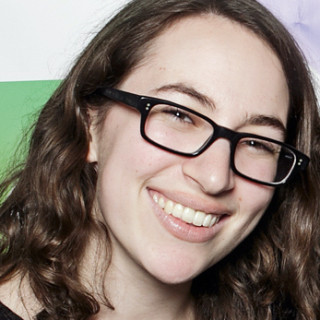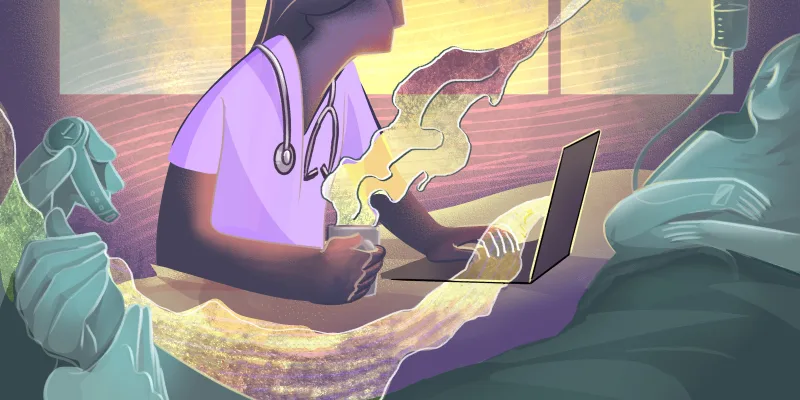
For thousands of medical students every year, Match Week is like a dream. It represents a culmination of years of hard work and effort and signifies the next step in a future career and calling.
For others, however, Match Week can be more like a bad date or even a total nightmare. According to the National Resident Matching Program numbers, over a thousand medical students didn’t match in 2018. This includes students who entered the Supplemental Offer and Acceptance Program (SOAP, which was previously know as the Scramble), and were ultimately not offered a residency position. For those students, receiving the news that they failed to Match can feel like the worst day of their lives.
So, what do you do if you don’t Match?
Here are some tips to help you navigate the next steps:
1. Don’t panic. While this is obviously easier said than done, it’s still true. Try to remember — you are not the first (nor will you be the last) medical student who does not Match. Your program will have contingencies, and next steps are available. So, take a breath and don’t freak out.
This is also time to take care of yourself. Although it’s natural for many applicants to want to be alone during these difficult moments, this is an opportunity to reach out to your support network if you need it. While it may be hard to explain your feelings (or how the Match system works in the first place), your family and friends can provide you with the love and support you need and deserve during this time. Finally, don’t forget — while it’s normal to feel anxious and disappointed during this experience, symptoms of clinical depression, including suicidality, are red flags that you may need more help. In an age of unprecedented burnout among medical trainees, self-care is critical. Most importantly, you must remember: you are not alone.
2. Decide what’s important to you. Failing to Match can represent a critical junction for medical students. Now is the time to decide if you want to move forward with your medical training. While this may seem like an obvious choice — after all, you’ve already put four years and tens of thousands of dollars into the process — that may not actually be the case for many.
So, take the time to take stock of your goals. Talk to your family, loved ones, or partner. Consider looking into other careers in health care, such as hospital operations or consulting. Ultimately, you should ask yourself – is being a doctor truly my dream? Your medical degree is valuable even if you don’t pursue clinical training. And choosing a career outside clinical medicine (or outside health care entirely) isn’t a sign of failure – it can be the sign of a good decision made thoughtfully, if you know what you want.
If moving forward with residency is your ultimate goal, you will need to focus on that going forward. You will work hard. You will have to sort out finances. You may have to move. Most importantly, make sure to complete remaining medical school courses and commitments — you still need to graduate! Consider cutting additional, low-enthusiasm commitments that might take away time or distract you from your goals. Again, this is an opportunity for you to evaluate what’s important and go for it!
3. Figure out why you didn’t Match … and work on it! This is an area where your academic advisor, program director, or other mentors can be valuable. Sometimes, reaching out to your highly-ranked programs or a program you thought you connected with can be helpful. Ask if there were particular areas of your application they found strong or weak, or if they have recommendations for your professional development moving forward.
As far as your application, it may be something simple, like having applied to only a few programs, or not including enough ‘safety’ programs in your rank list. Make sure you review your list with your advisor and discuss ways to optimize it for the next round. Other low-hanging fruits include bolstering your extra-curricular activities, increasing your research experience, or adding publications to your CV.
Other common areas include weak personal statements, underdeveloped interviewing skills, or an impersonal letter of recommendation. Each of these can be addressed with time and a bit of effort. Have colleagues and mentors review your statement and offer suggestions for improvements. Schedule a mock interview with your medical school advisor. Find physicians in your area(s) of interest to work with during your off-year (see point 4!) for a stronger, more personal letter.
For those applicants who failed Step 1, or have other black marks on their transcripts or application, these can be harder to address. Ask your advisor if there are options, like re-taking coursework. If not, the best advice may be to discuss the issues head-on in your personal statement. (Although, be careful not to come off sounding too whiny, or that you are making excuses). Prepare to respond to questions about weaknesses in your application during interviews — identifying, explaining, and discussing how you learned and grew from your challenging experiences will set you apart as someone who can grow from failure.
4. Reach out to your network. Your academic advisor and/or medical school program director should be first on your list of people to contact. Likely, they will have already reached out during the SOAP or immediately after to help plan your next steps. Take advantage of their services before you graduate, and make sure you have networks for assistance in place for when you leave medical school.
This is also the time to reach out to other mentors you have accumulated throughout your training. Many can be helpful in providing career advice (especially if you are thinking about changing specialties) and may also have opportunities for jobs, research, or additional clinical shadowing. Although it can be hard to share the news about your Match, a good mentor will be able to provide needed support and may offer insights into their own experiences with failure, disappointment, or personal and professional challenges.
In addition to people you know well, consider reaching out to other physicians or medical leaders in your community. That surgeon who gave a great lecture during the first year of medal school? Reach out! Or that geriatrician/family friend your mom has been dying to put you in touch with? Now’s the time. Use your network to pick brains, make connections, and build yourself up for the next Match cycle.
5. Pass your exams. This is the most straightforward step. Step 3 is the last necessary licensing exam you will need to take before your boards at the end of residency. Many students choose to take this during their residency, with the benefit of clinical experience to aide them. If you fail to Match, passing Step 3 early can check a major box on your professional accreditation checklist. It’s one less thing to worry about and may help your application if you score well, particularly if your Step 1 or 2 scores were not strong. And again, make sure to focus on your medical school coursework — even if the last few months of school are light, be sure to do well, especially if you have low grades on prior coursework.
6. Make that extra year count. Once you’ve decided to move forward with the next round of residency applications, decide what you want to do with the extra year. Although you may feel one year older when you apply, consider this time as a bonus, an opportunity to work not only on your application but on yourself as well!
While there are many different ways for applicants to fill their time (yoga instructor or ski bum sound pretty nice), generally speaking, it’s a good idea to work on a weak area of your application during that time. Frequently this includes research. Options for medical research are broad and include traditional bench work as well as work in fields like public health, translational medicine, and health policy.
If you choose to pursue research, make sure it’s something you’re passionate about since pipetting alone in a dark room can quickly suck you of your drive if biomedical science isn’t your jam (and isn’t guaranteed to impress residency programs). And be sure to talk to your primary investigators (PIs) beforehand about publication opportunities and authorship, to ensure that your contribution is recognized.
Another option is obtaining an advanced degree. Residency programs are increasingly looking for non-traditional applicants with additional experience and expertise. An advanced degree can help set you apart from other applicants, provided it is in an area you are passionate about (and not just window dressing for your application). This can be a great opportunity to think about other professional areas you are interested in, and how you might combine them with a future medical career. Popular advanced degrees include Masters in Public Health (MPH) or Masters of Science in biomedical fields, but degrees like MBAs are also popular and may widen your professional skill set. A word of warning: these degrees can be expensive, and the quality of the program can vary. So make sure an advanced degree is something you really want, or could use if you decided not to pursue medicine.
Finally, consider getting a job! This is an opportunity for you to pay off student loans or save money, in addition to developing important real-world skills that are often lacking in younger applicants who may not have entered the workforce prior to residency. Jobs need not necessarily be in the medical field, although it may be helpful for networking etc. Whatever you choose, make sure that you can speak about it maturely and with enthusiasm in your personal statement or interview. This is an opportunity for you to work on yourself, and to build important skills in areas like problem-solving, leadership, and team-building — all of which will help you be a high-performing resident.
Failing to Match into a residency can be a tough experience. But if a career in medicine is truly something you are passionate about, it won’t stop you from achieving your goal. It can be a chance to learn and grow, and an opportunity to make yourself a better applicant, resident, and future physician.
Dr. Katharine Lawrence is a physician based in Miami, FL and a 2018-2019 Doximity Author.






